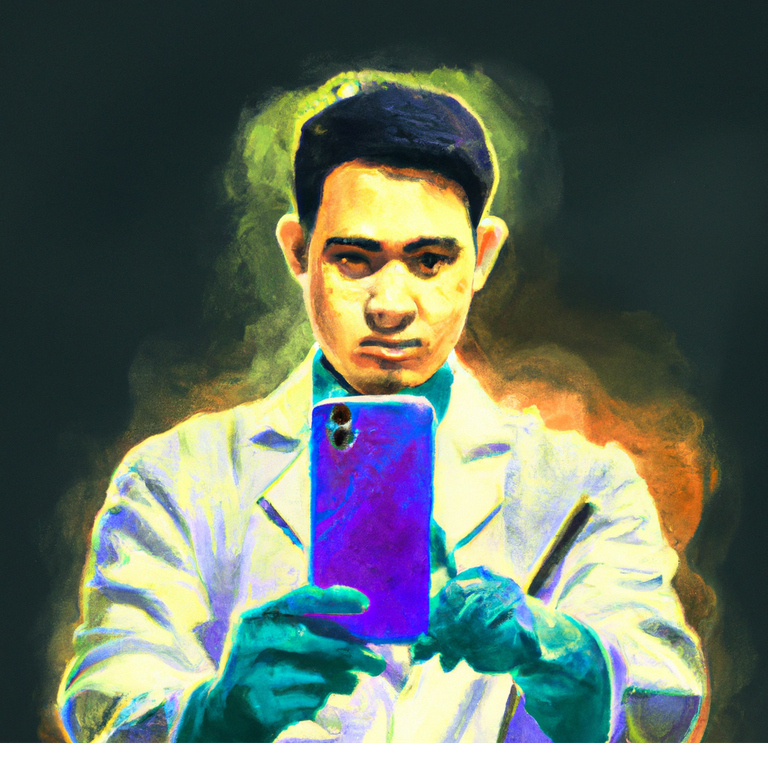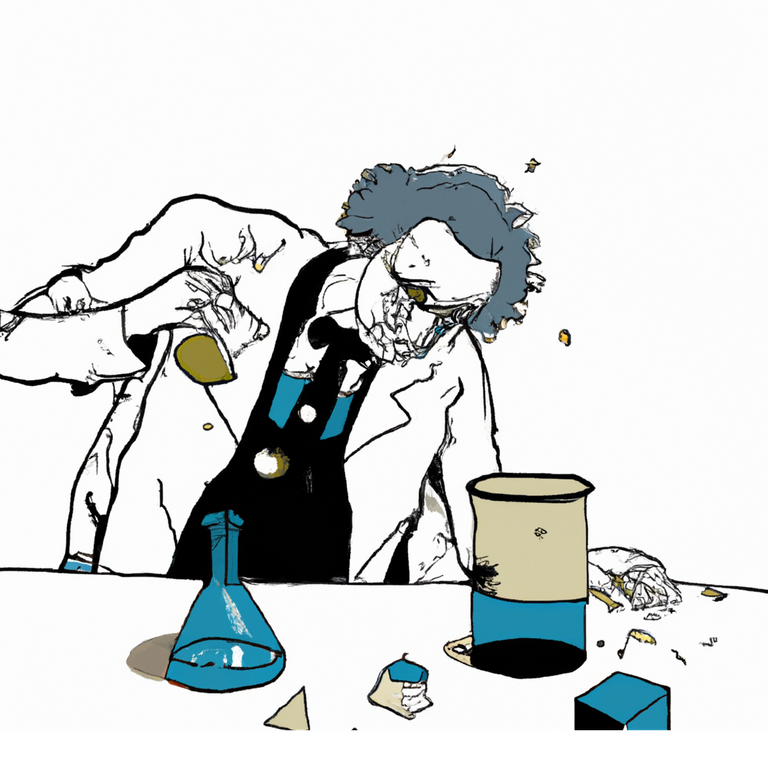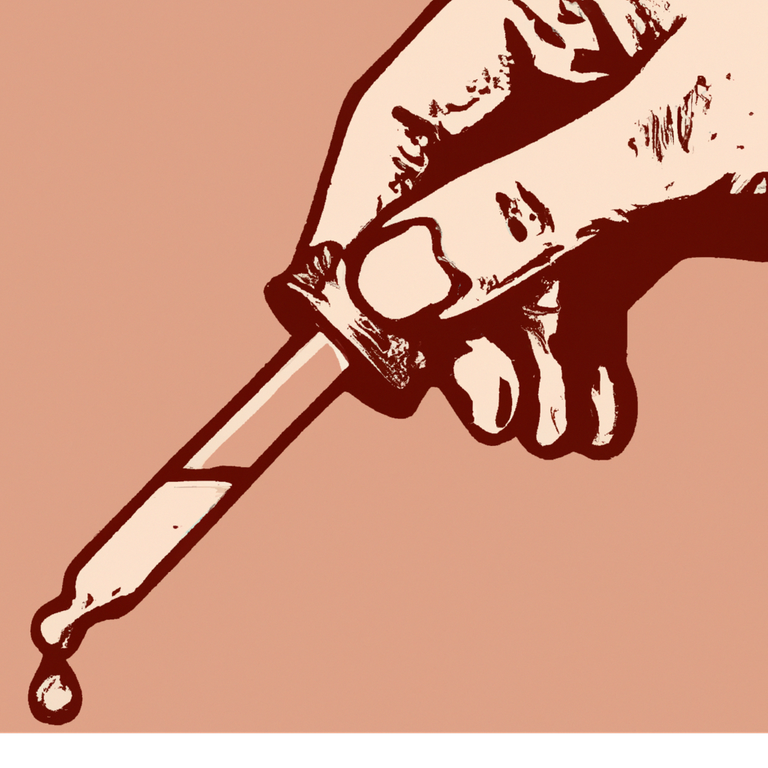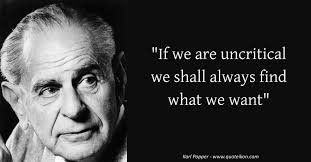Is Science Hiding Behind An Instagram Filter?
I'm currently into my third day of a week-long genomics training workshop and I'm already absolutely defeated.

I've managed to somehow, unbeknownst to me, destroy (or maybe never materialize) my mRNA library that I was trying to craft. After doing my best to meticulously adhere to protocol and mind-numbing of iterations of "washing" beads, the Qubit flurometer had a low reading. This machine is designed to pick up on special fluorescent molecules in targeted DNA/RNA to quantify them. Essentially, it's a fancy counting machine and does this even in the face of contamination. The small number of participants in the cohort awaited the individual results of their sample. It turns out I had the second to worst sample in the group.
My failure had an audience this time.
I clung to a bit of hope that maybe I could still salvage everything. One of the seasoned researchers in the lab said that you could be amazed with libraries that could be produced with very small samples. The next part of the quality control process involved using a bioanalyzer. The bioanalyzer separates by size using electrophoresis. You get a fancy graph showing how many fragments of different sizes that your sample has. When preparing for this process, one of the researchers asked my cohort if anyone would like to give the setup a try. Not a soul dared to attempt to the setup of the chip on which the samples would be placed. If they messed up the preparation, everyone's sample would not read. The samples are already impossibly small, ten millionths of a liter. 1/10th of this is needed for the process, so every bit counts. It looks like a little sad drop at the bottom of a vial after hours of work.

I volunteered for the execution block. Everyone stood around and watched as I prepared the chip. I was really nervous, which is odd considering I deal with life-threatening situations all of the time at work, as a first responder. I'm constantly surrounded by the possibility that I'm going into a situation that's dangerously not compatible with life, or making a high-stakes emergency medical decision with a person's life sometimes in the balance. Apparently pushing a little gel into a chip while ten people watch is much more intimidating. However, I was commended for my effort by overseers of the workshop and told that I did a good job. After celebrating jokingly (and somewhat seriously) we took the samples to the machine.
Error: Voltage is too low in the top-left cell
Even when it seemed like I did the right thing, I did it wrong. We were immediately whisked away to a lecture while professional researchers in the lab did some damage control to fix the error that I likely caused. Upon returning from the lecture our results were ready. I had a few spikes on the graph from my sample, but they weren't in the right places. The graph, as mentioned before creates spikes at different places indicating different lengths of sequences. The only sequence lengths that had large spikes were from adapters, pieces of DNA I attempted to "glue" on the ends of my target.
How many times can you mess up in one day?

The workshop is part of the INBRE program sponsored by the National Institute of Health. This is aimed at sponsoring biomedical research/training in underfunded research states. My state seems to qualify year over year. It's a rare opportunity for me, of which I'm grateful for getting the chance to participate. Very few people in my state get these opportunities, and I'm over here just blowing it. Resources are very finite in these types of settings. Some of the newer more "long-read" type sequencing machines take cartridges that can cost around fifteen-thousand dollars. I was using much less expensive materials but how could I ever justify getting the chance to use the cutting-edge technology if I can't get past the small stuff?
I spent the rest of my evening after the disaster huddled in the provided dorm, lying on a bed much less comfortable than the one I'm missing at home. I miss my family and my dogs. Unlike my contemporaries, I took some vacation time at work to make this experience happen. I'm a non-traditional student with very limited opportunities to chase this crazy science dream. I work so incredibly hard to try to make this happen, and yet it always seems just out of reach. In my depressive state I happened to read a post by @taraz speaking of people being "digitally perfect" yet "physically flawed."
Could this be the case with science?
We always talk about the toxicity and dangers of social media, but maybe this toxicity isn't quite new. Any one who has spent more than an hour or two conducting experiments quickly realizes significant results in experimentation are rare. Yet, that's all we read in publications. No one wants to read a scientific journal full of failure. This is almost hypocritical according to the ideas set forth by Karl Popper, the father of falsification.

Popper famously said:
“In so far as a scientific statement speaks about reality, it must be falsifiable: and in so far as it is not falsifiable, it does not speak about reality.”
An interesting takeaway from Popper is the belief that theories can only be proven false, and never should be considered as absolute truth. In Popper's world everything in science is falsification. The absence of the falsifiability leads to support for a possible truth (theory). This at its very core is unofficial scientific dogma. The lack of information on failure (insignificant results) seems inefficient at best. Yet we are here amplifying scraps of "significant" inferential importance. Ironically this is in the name of being unbiased while we extrapolate new ideas from a blatant bias to laud the successful. We are missing a ton of value/time/resources from the work of those that took a path that didn't work out for one reason or another.
Is this entirely different than a hyperrealistic Instagram filter covering the "flaws" of seemingly perfect influencer? The one that impressionable people naively dangerously compare themselves to. I don't think so.
My day tomorrow will begin with some utterly heavy-handed pipetting, that I'm working on improving. I'm sure I'll over-mix things and inadvertently aerate them. Then I won't mix a solution enough. I'll drop stuff and read protocols in a state of paranoia. But, I'll get back on the horse because I have relentless dedication. I don't like failing, but I do it constantly. Isn't it funny that our greatest successes aren't matched evenly in emotional intensity with our greatest failures? I hardly think about anything I've been successful with, but I replay mental tapes of every minor failure. The cuts are deep and this stuff lives rent-free in my head. Inversely, the scientific community remembers the successes of academic achievement, but never even hears about "insignificance." I'm not sure entirely how we fix this, but for now I'll wear my failure quite literally in the form of a stain on the lab coat I'll be wearing.
Astrology must be real because I currently feel the same way about my endeavours. Only I don't have a lab coat. :)
Fake it 'til you make it buddy.
dude, wait till you hear about revenge in science :D ... its spiteful and unplreasant and happens all the time.
That's why I'm going to be doing it alone lol.
Interesting discussion in your post this time, thank you for sharing.
Thank you!
I was enjoying the story and the journey thus far and then i can across this, and i was like, well man if anything can go wrong, it would, haha.
I really love how you kept me on a roller coaster ride throughout the read and the humor in your writeups is just so relatable, how you turn a sad happening into something so fun and comprehensible, well, you are an amazing writer, thanks for sharing
I really appreciate the comment. The post was good therapy. Gave you a follow back!
Haha it was indeed and thanks for the follow back
Thanks for your contribution to the STEMsocial community. Feel free to join us on discord to get to know the rest of us!
Please consider delegating to the @stemsocial account (85% of the curation rewards are returned).
You may also include @stemsocial as a beneficiary of the rewards of this post to get a stronger support.
Congratulations @kryptik! You have completed the following achievement on the Hive blockchain And have been rewarded with New badge(s)
Your next target is to reach 6000 upvotes.
You can view your badges on your board and compare yourself to others in the Ranking
If you no longer want to receive notifications, reply to this comment with the word
STOPCheck out our last posts: